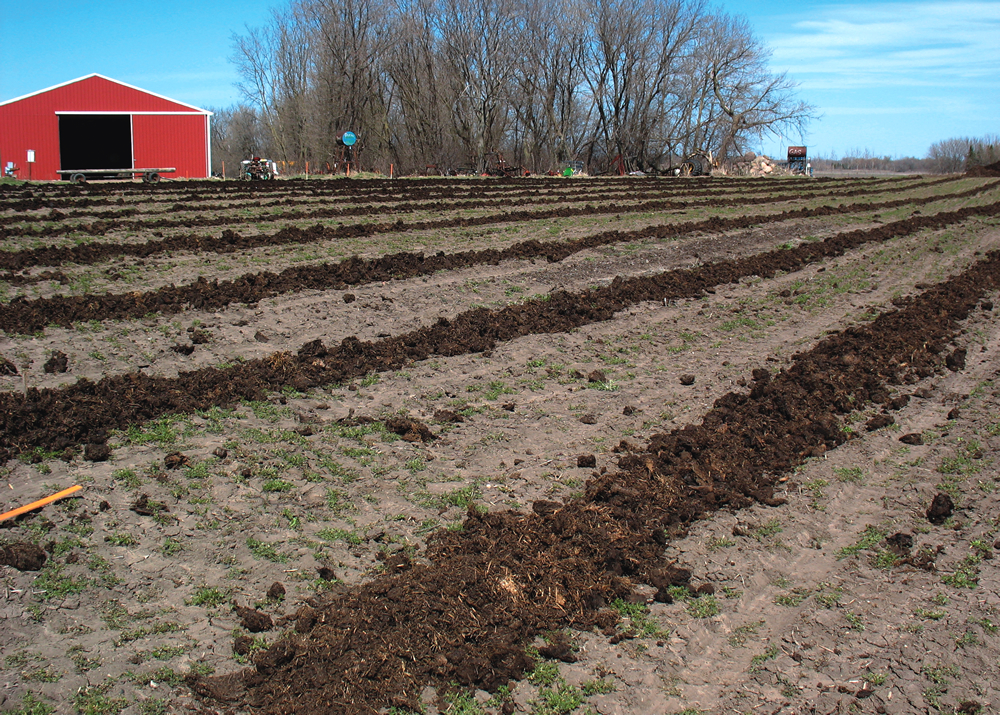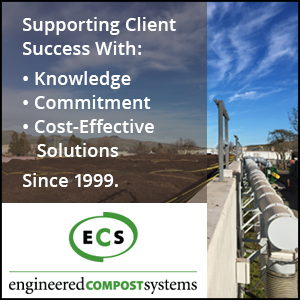Healthy soil is critical to feeding the world’s growing population and mitigating impacts of climate change. But how to define “soil health” is tricky.
Ron Alexander
BioCycle January 2015
In my quest to better understand how compost improves the chemical, physical and biological attributes of soil, I came across a training course created by the Rodale Institute, with support from the Northeast Region Sustainable Agriculture Research and Education (SARE) Program called “An Introduction to Soil Health.” The course emphasized that if we can improve the overall quality of the soil — improving it chemically (nutritionally), physically and biologically — we can improve crop productivity, reduce inputs, save water, reduce erosion, and so on. This must have been 10 to 15 years ago. Having a technical background, I was given permission to use the presentation as a training tool for composters, as well as potential compost end users and specifiers.
I took the concept within the presentation as the “gospel,” and thought (again with my technical background) that the world has to look backwards to go forward. History, a la the U.S. Dust Bowl in the 1930s, has shown what happens when a society does not protect the soil as if it were a valuable resource. And very little was done to fix what caused the Dust Bowl, until the dust from the central U.S. (Oklahoma and Texas) actually blew down Pennsylvania Avenue in Washington, D.C.
Defining Soil Health
More recently, federal agencies (e.g., USDA, U.S. EPA), state agricultural universities and many nonprofit organizations and trade associations have promoted the virtues of “Soil Health.” Why? Because improving soil health will allow us as a society to feed the growing number of inhabitants, and because with healthy soil, we can more easily moderate the effects of climate change.
So, what is “Soil Health”? Several definitions currently exist — which may be part of our problem in gaining overall acceptance of the concept:
The “Classic” Definition: The term “Soil Health” is really just a synonym for improved “Soil Function” and/or “Soil Quality.” Simply put by Dr. Clay Robinson, American Society of Agronomy, “Soils that are healthy, function better and help plants function better.”
USDA’s Natural Resources Conservation Service (NRCS) Definition: The continued capacity of the soil to function as a vital living ecosystem that sustains plants, animals and humans. (Huh?)
“An Introduction to Soil Health” (Northeast SARE program):
• Soil: An ecological system consisting of inorganic minerals, decomposing organic matter, living organisms, and growing plants.
• Soil health or soil quality: A general term that describes the ability of a soil to function. (Ahhh….)
State of Washington Department of Ecology, from “Building Healthy Soil”: The term “soil health” refers to the condition of the soil. Healthy soil is productive with less effort. It has physical, chemical and biological properties that easily support healthy plants, humans and other animals, and maintain a healthy environment.
And Here’s The Catch
Thank you to the State of Washington for distilling the message! But before we celebrate the simplicity and clarity, there’s a catch (well, several catches):
1. Let’s not be naive. There are large companies that promote primarily soil chemistry, i.e., “add fertilizer,” while others promote primarily soil biology (but not the way we do), i.e., “use pesticides.” They do not promote a more holistic approach that makes the most sense over the long haul, i.e., fix the soil first, then use chemical products as necessary.
2. A movement to improve the quality of soil, which has many components (including the conservation and addition of organic matter), does not (and perhaps, cannot) increase sales for agrochemical companies. These companies control agriculture, through their lobbying efforts.
3. The state system that regulates sale of fertilizers and soil amendments has a problem with the term “soil health” and has a hard time defining the efficacy of products that work by improving the soil (or plant growth) via a variety of modes of action.
First, within this regulatory structure, the term “health” historically infers “pesticide” usage, and pesticide usage is governed by the U. S. EPA (FIFRA Act, circa 1947). So, we cannot legally state that compost can control plant pests without an EPA review (of an individual product). Having interviewed several state pesticide control officials, some states will allow composters to state that “compost improves certain soil characteristics, which leads to an improved overall soil health.” However, no state will allow anyone to infer that soil health leads to plant health… regardless of whether it is true or not. So compost manufacturers and soil blenders using compost should be careful about what they state on their product literature and website.
Further, this regulatory system innately has difficulty in signing off on the efficacy of a given product that works in a variety of ways (and ways that are not always totally understood, or linear in action). The bottom line is, there are great people within this regulatory system, but the system seems to have some flaws.
What Can Composters Do?
Here are some suggestions to address this conundrum:
Agriculture: Push for state and federal programs that financially support agricultural industries and individual farmers that protect and promote soil health.
Urban Living: Promote soil improvement as a means to reduce irrigation requirements (use less water) and manage storm water (promote green infrastructure methods). Conventional storm water infrastructure is really expensive.
Support The Advocates: Support the US Composting Council, and other related state/federal programs that promote soil health.
Learn, And Teach: Get educated about the science of soil health (at least, the basics) and educate the marketplace.
Be Smart: Use the term “Soil Health”, but be smart about how you do it!
Ron Alexander is president of R. Alexander Associates, Inc. (Apex, North Carolina, 919-367-8350, www.alexassoc.net), a company specializing in product and market development for organic recycled products. He is author of ‘The Practical Guide to Compost Marketing and Sales’ (2nd Edition published by BioCycle) and has over 30 years of experience in compost marketing. Mr. Alexander serves as cochair of the US Composting Council’s Market Development Committee and is an Industry Liaison to AAPFCO (Association of American Plant Food Control Officials).














